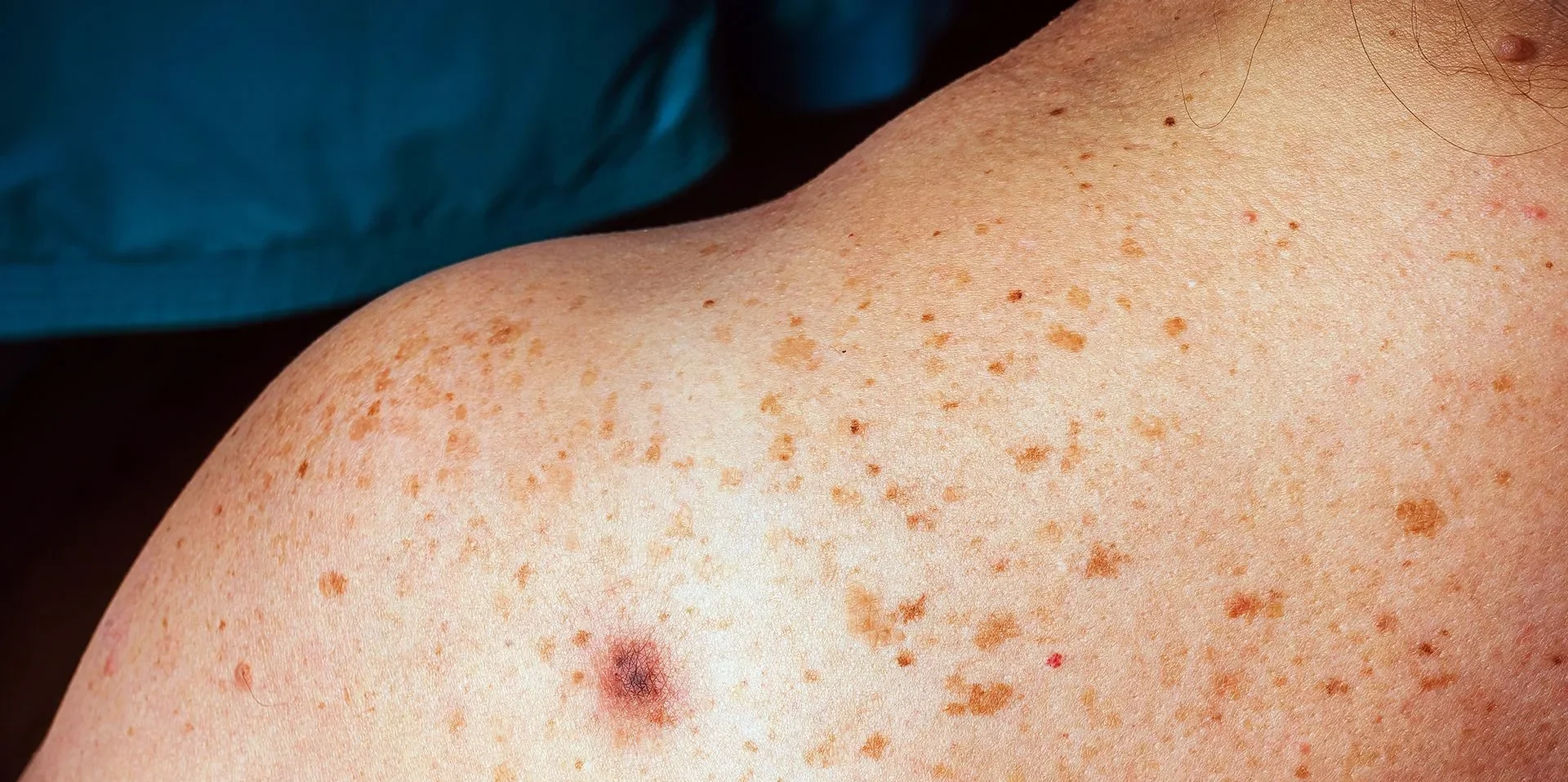Melanoma
Melanoma is a type of skin cancer that can be life-threatening if not detected and treated early. It is caused by the uncontrolled growth of melanocytes, the cells responsible for producing the pigment that gives color to our skin, hair, and eyes.
Melanoma can develop anywhere on the body, but it is more commonly found on areas that are frequently exposed to the sun, such as the face, neck, arms, and legs.
The symptoms of melanoma can vary depending on the stage of the disease. In the early stages, melanoma may appear as a new mole or a change in the size, shape, or color of an existing mole.
As the cancer progresses, it may cause itching, bleeding, or crusting of the affected area. In some cases, melanoma can also spread to other parts of the body, causing symptoms such as fatigue, weight loss, and difficulty breathing.
If you notice any changes in your skin, it’s important to get them checked out by a one of our team as soon as possible. Early detection and treatment of melanoma can greatly improve your chances of a full recovery. Treatment options may include surgery, chemotherapy, radiation therapy, and immunotherapy.
Don’t take any chances with your health. If you suspect that you may have melanoma or any other skin condition, make an appointment with a us today.
Your skin is your body’s largest organ, and it deserves to be treated with the utmost care and attention. Protect yourself from the dangers of melanoma by staying vigilant and seeking medical help at the first sign of trouble.
Basal Cell Carcinoma
Basal cell carcinoma is a type of skin cancer that can be caused by exposure to the sun or other sources of ultraviolet radiation. It usually appears as a small, raised bump on the skin that may have a pearly or waxy appearance. While this type of cancer is not usually life-threatening, it can be disfiguring if left untreated.
Fortunately, there are several medical treatments available for basal cell carcinoma. One option is excision surgery, which involves removing the cancerous tissue.
Another treatment option is radiation therapy, which uses high-energy radiation to kill cancer cells. This approach is often used for tumors that are difficult to remove surgically, or for patients who are not good candidates for surgery. Radiation therapy can be done on an outpatient basis, but it can also have side effects like skin irritation and fatigue.
A third treatment option is topical chemotherapy, which involves applying a cream or lotion containing anti-cancer drugs directly to the affected area. This approach is less invasive than surgery or radiation therapy, but it can take several weeks or months to see results.
If you suspect that you may have a carcinoma, please make an appointment with us to ensure you have the correct diagnosis and treatment options.
Squamous Cell Carcinoma
Squamous cell carcinoma is a type of skin cancer that affects the squamous cells, which are the flat cells that make up the skin’s outermost layer. This type of cancer often appears as a scaly or crusty bump on the skin that may bleed or become sore.
There are several effective medical treatments available for squamous cell carcinoma. One option is surgery, which involves removing the cancerous tissue along with a margin of healthy tissue to ensure that all of the cancer has been removed. This approach is highly effective and has a high success rate, but it can also be invasive and require a longer recovery period.
Another treatment option is radiation therapy, which uses high-energy radiation to kill cancer cells. This approach is often used for tumors that are difficult to remove surgically, or for patients who are not good candidates for surgery. Radiation therapy can be done on an outpatient basis, but it can also have side effects like skin irritation and fatigue.
A third treatment option is topical chemotherapy, which involves applying a cream or lotion containing anti-cancer drugs directly to the affected area. This approach is less invasive than surgery or radiation therapy, but it can take several weeks or months to see results.
If you suspect you mave have squamous cell carcinoma, it’s important to us now to determine the best treatment approach for you. Your doctor can help you weigh the benefits and risks of each option and make an informed decision about your care.
